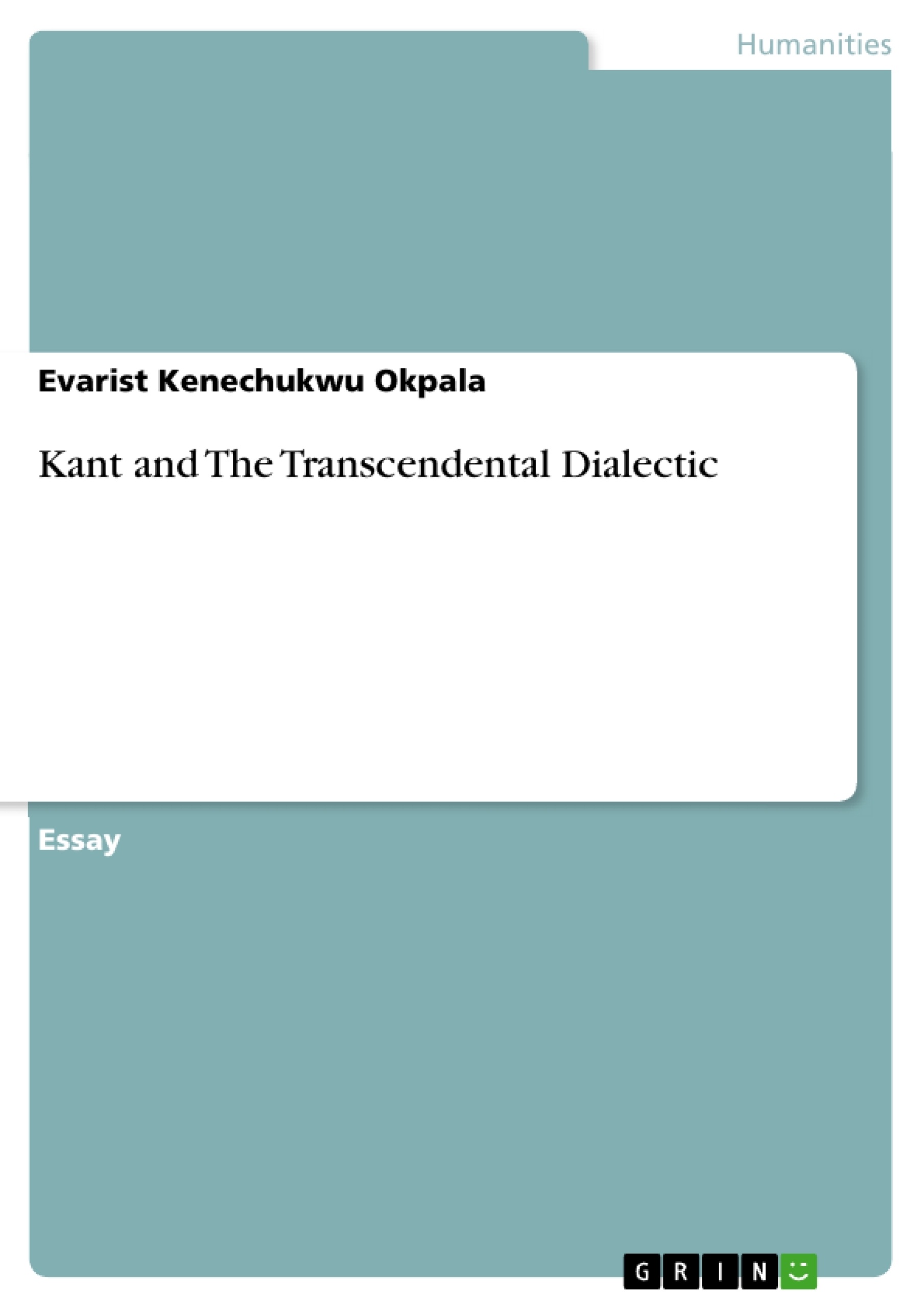In his transcendental Dialectic, Kant set out to justify his conviction that the entirety of metaphysical errors which were prevalent among philosophers who came before him were all brought about because they had their source in common, in the faculty of reason. He noted that man has the capacity of drawing inferences and this capacity is what Kant calls reason, which means that he was preoccupied with understanding the possibility of knowledge through inference. In the Transcendental Dialectic Kant was interested in presenting the pure reason (Vernunft) as a faculty which is distinct and which can be distinguished from understanding (Verstand). Reason for Kant is the faculty with the sole responsibility of producing transcendental ideas which in themselves do not increase our knowledge of scientific objects but they have a positive as well as a regulative function which they perform. Kant further adds that it is not only that the knowledge which the traditional and speculative metaphysics provide is illusory, he went further to demonstrate his disaffection with speculative metaphysics by giving a critical criticism of speculative psychology, speculative cosmology as well as natural or philosophical theology since they are the major areas where wrong metaphysics applies the most.
Inhaltsverzeichnis (Table of Contents)
- General Introduction
- What did Kant mean by 'transcendental dialectic'?
- The unending procession in an upward direction in a chain of prosyllogism
- There are three types of syllogistic inference
- In the deduction of the Ideas of pure reason
- The first relation
- In the second relation
- Regarding our representations of object of though in general
- The principal ideas of pure reason
- Kant now made it known
- In rational psychology
- It quite necessary a condition
- There is a fundamental prosyllogism
- Speculative cosmology
- There is the third transcendental Idea
- For Kant
- The transcendental ideas of pure reason
- Though the Dialectic
Zielsetzung und Themenschwerpunkte (Objectives and Key Themes)
This text aims to explain Kant's transcendental dialectic, focusing on how Kant distinguishes reason and understanding and uses the dialectic to critique metaphysical errors. It explores how Kant analyzes different types of syllogistic reasoning and their relation to transcendental ideas. The text also delves into Kant's critique of rational psychology, speculative cosmology, and natural theology.
- Kant's distinction between reason and understanding
- Critique of metaphysical errors through transcendental dialectic
- Analysis of syllogistic inference and its relation to transcendental ideas
- Examination of Kant's views on rational psychology, speculative cosmology, and natural theology
- The regulative use of reason and its role in avoiding metaphysical illusions
Zusammenfassung der Kapitel (Chapter Summaries)
The General Introduction sets the stage by outlining Kant's central argument: that metaphysical errors stem from the faculty of reason. The text then defines Kant's concept of "transcendental dialectic" as a critique of both reason and understanding, aiming to expose false reasoning about supersensible realities. Subsequent sections analyze different types of syllogistic inference (categorical, hypothetical, and disjunctive) and their connection to Kant's transcendental ideas of the soul, world, and God. The analysis explores how reason, in its pursuit of the unconditioned, leads to the formation of these ideas, but also to potential metaphysical illusions. Kant's critiques of rational psychology and speculative cosmology are examined, focusing on how the application of categories to the transcendental ego and the pursuit of a complete causal sequence of the world lead to antinomies. Finally, Kant's critique of natural theology is discussed, highlighting his rejection of the ontological argument for the existence of God. The text concludes by discussing the regulative role of reason in providing a systematic framework for our knowledge without leading to unfounded metaphysical claims.
Schlüsselwörter (Keywords)
Kant, transcendental dialectic, reason, understanding, syllogistic inference, transcendental ideas, rational psychology, speculative cosmology, natural theology, metaphysics, antinomies, regulative use, unconditioned, phenomena, noumena.
- Quote paper
- Evarist Kenechukwu Okpala (Author), 2024, Kant and The Transcendental Dialectic, Munich, GRIN Verlag, https://www.grin.com/document/1514637




